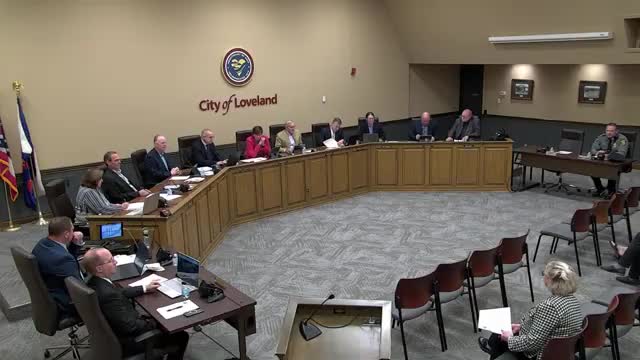Clermont County mental health director asks Loveland council to note levy renewal's role in local services
Get AI-powered insights, summaries, and transcripts
Subscribe
Summary
Leanne Watson, executive director of the Clermont County Mental Health and Recovery Board, briefed the Loveland City Council on a 0.75-mill levy renewal she said would preserve crisis hotlines, mobile crisis teams and school-based services that reach about 25,000 residents annually.
Leanne Watson, executive director of the Clermont County Mental Health and Recovery Board, told the Loveland City Council the board’s 0.75-mill levy renewal will appear on the Nov. 4 ballot as a renewal that she said carries no new taxes and would continue funding crisis hotlines, a mobile crisis team, school-based mental health services, drug-prevention programs, suicide-prevention work and medication-assisted treatment for people with opioid addiction.
Watson said the levy brings in about $3.3 million a year to the county behavioral-health system and represents “over a third” of the board’s roughly $8 million annual budget. She said levy-funded services reach about 25,000 residents annually — “one in five Clermont residents,” according to her presentation.
The director emphasized increasing demand during and since the COVID-19 pandemic. “We’ve had a 53% increase in our crisis services since 02/2020,” Watson said, adding the board has recorded a 42% increase in calls from youth and a 13% increase in youth using school-based mental-health services.
Watson described one proposed new use of levy funds: a crisis receiving center she compared to an urgent-care clinic for adults with behavioral-health needs. She said the county is going to bid construction and renovation work and that the center must be completed by December 2026 because some ARPA funds were used for the building renovation. Watson said the center is hoped to be operational in early March 2027.
Council members asked operational questions. Councilmember Bateman asked when the crisis receiving center might open; Watson said staff are “in the process of going out to bid” and reiterated the December 2026 completion deadline tied to ARPA funding. Vice Mayor Phelps asked whether the board had hired additional staff to meet rising demand; Watson said the board contracts services to local providers rather than directly employing clinicians and that workforce shortages in behavioral health remain a limiting factor. “The workforce is a huge issue,” she said.
Members of the council and city staff noted partnerships between mobile crisis teams and first responders. A speaker identified as Mr. Brown told the council the mobile crisis response reduces police liability and helps avoid use-of-force incidents, and Watson noted the board provides free crisis intervention team (CIT) training to county departments to aid de-escalation and referral to community resources.
Watson said the levy also functions as a safety net for residents without insurance or with high deductibles, allowing them to access behavioral-health services without regard to ability to pay. She invited council members to contact her with questions and left informational materials for the council.
The presentation occurred during the council’s public meeting; Watson answered several council members’ questions but no formal city action or vote on the levy occurred at the session.
